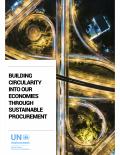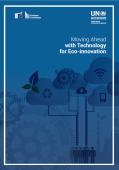This report summarises the process and outcomes of the multi-stakeholder of the Amsterdam City Doughnut, which will guide the creation of circular strategies to create a truly thriving Amsterdam over the coming five years.

This report introduces the role that sustainable procurement can play to accelerate the transition to a circular economy and the shift towards more sustainable patterns of consumption and production. It is addressed to both public procurers and policy makers as well as corporate buyers and business leaders.

This report emphasizes the technological aspects relevant to eco-innovation. It describes the role of technology within an eco-innovation approach, provides guidance on identifying, developing, and adopting technologies, informs on the role of policy-making, and highlights the role of business intermediaries.
This report provides a high-level summary of the research on corporate action on WASH in supply chains. It provides key findings and recommendations for the practice and policy community. Case studies accompany this report and detail how companies are taking action.
While plastic pollution is a global problem, around 60 percent of marine plastic debris enters the ocean from just five countries: China, Indonesia, Thailand, Vietnam, and the Philippines. This report focuses on the challenge of managing plastic packaging waste in Southeast Asia and China. In addition to showing the scale of the challenge, the report gives an idea of the funds that could be raised if these countries introduced extended producer responsibility (EPR) schemes, under which companies that place plastic packaging on the market cover the costs of its proper management—from collection and sorting to recycling and disposal.
